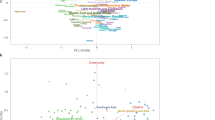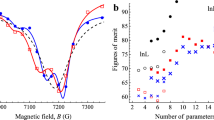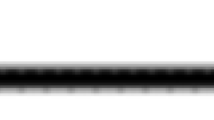Abstract
In your issue of July 3, just to hand, Dr. Richardson suggests a method of treating parallels which differs from the orthodox Euclidean method. Improvements of a kind similar to that suggested by him will go far towards rendering the teaching of geometry more effective than it is at present. I differ from him to a slight degree in this particular instance, in that I consider it preferable to take the more general case of equal inclination of parallels to any straight line which cuts them as expressing the clearest and most useful conception of parallelism. By constituting sameness of direction the criterion of parallels—direction being purely relative, this sameness is determined by reference to any other direction—the other theorems, common perpendicularity, equality of alternate angles, &c., are easily deduced.
This is a preview of subscription content, access via your institution
Access options
Subscribe to this journal
Receive 51 print issues and online access
$199.00 per year
only $3.90 per issue
Buy this article
- Purchase on Springer Link
- Instant access to full article PDF
Prices may be subject to local taxes which are calculated during checkout
Similar content being viewed by others
Author information
Authors and Affiliations
Rights and permissions
About this article
Cite this article
JAMIESON, W. A Method of Treating Parallels. Nature 66, 576–577 (1902). https://doi.org/10.1038/066576b0
Issue Date:
DOI: https://doi.org/10.1038/066576b0
Comments
By submitting a comment you agree to abide by our Terms and Community Guidelines. If you find something abusive or that does not comply with our terms or guidelines please flag it as inappropriate.



